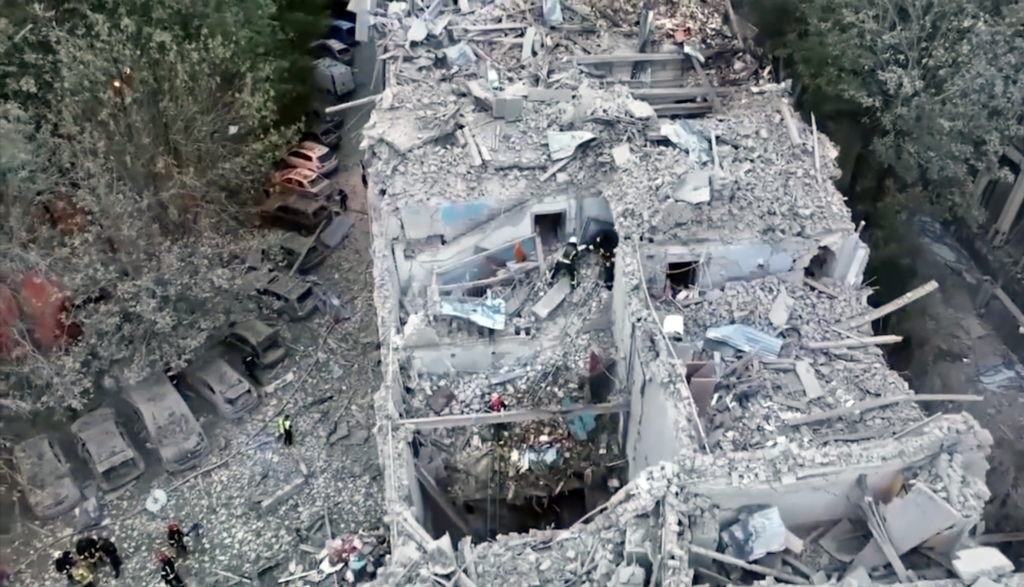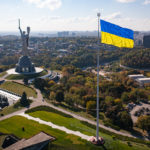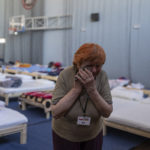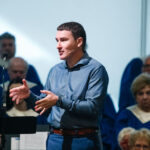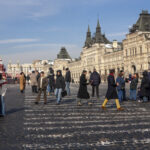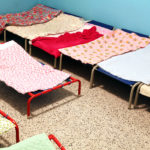
LVIV, Ukraine (BP) – A Russian airstrike targeting civilians in Lviv damaged the home of a Ukrainian Baptist Theological Seminary (UBTS) worker about a half-mile drive from the campus.
The contract worker, a husband and father whose wife is pregnant, was not injured in the July 7 attack but relocated to live with local relatives, UBTS President Yaroslav “Slavik” Pyzh said. UBTS continued to operate after the attack that killed 10, but students are now on summer break.
Ukrainian forces shot down seven of the 10 Kalibr missiles Russia launched from the Black Sea on Lviv, Ukrainian officials told Reuters. The far western Ukraine city had been a relatively safe location outside the initial war zone and is home to many internally displaced persons.

“It was fairly close to the seminary campus,” Pyzh said. “The people got really tired so when we have sirens, not all of them go to bomb shelters anymore. They just stay at home, which kind of explains the number of people being injured and killed as a result of that.”
Fleeing to bomb shelters during air raid sirens has been a way of life in Lviv for nearly a year.
“People are just tired of running back and forth to bomb shelters. Sadly, this is just part of life.”
Lviv Mayor Andriy Sadovyi said the airstrike was the largest on Lviv’s civilian infrastructure since the war began. The bombs struck as residents were asleep, and damaged 35 residential homes, an office complex, a student campus, a school and 50 cars, Reuters reported.
UBTS continues to minister as the war hits closer to home, operating 17 We Care Centers in cooperation with nongovernmental groups. The centers, which launched in 2022 with six locations offering humanitarian aid, have expanded to offer humanitarian, mental, educational and spiritual support. Seven of the centers have planted one church each, Pyzh said.
UBTS has expanded its educational programs to offer two counseling career tracts in response to the war. Class sizes have grown as students formerly enrolled in schools in eastern Ukraine have fled the war. Between 600 and 800 students are expected to be included in the spring 2023 graduating class, with commencement rescheduled to September.
Southern Baptist Send Relief continues to support We Care Centers, with locations spanning the country from Uzhhorod south of Lviv to Dryzkovka in the Donetsk region near the Russian boarder.
Meanwhile, religious persecution watchdog Global Christian Relief accuses Russia of “waging a brutal campaign against Christians in Ukraine,” pointing out that Russia has “killed, imprisoned or tortured at least two dozen religious leaders,” and destroyed, damaged or looted nearly 500 religious buildings and houses of worship.
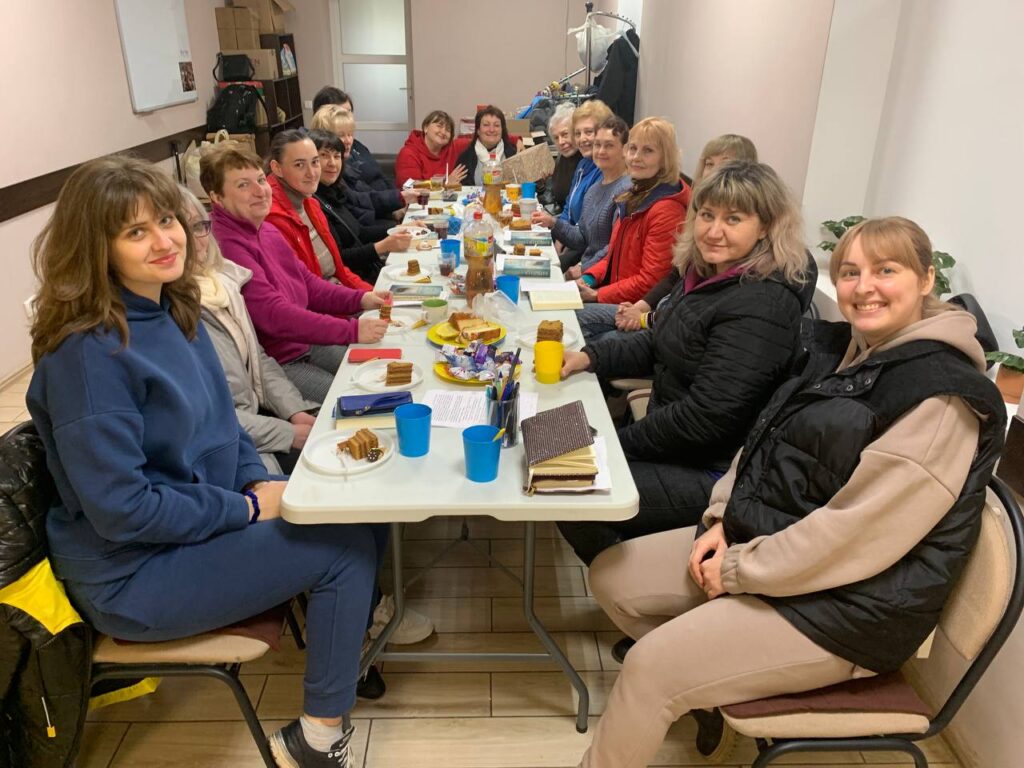
“These targeted attacks carried out by Russian forces against Ukrainian Christians and religious minorities essentially constitute a cultural genocide campaign,” Global Christian Relief CEO David Curry said. “Churches are soft targets, which means they are typically exposed and have little security against an invading army. They hold significant spiritual and cultural value for communities and destroying them is a deliberate attempt by Russia to demoralize Ukrainians.”
Curry, who serves on the U.S. Commission on International Religious Freedom, also accuses Russian Orthodox Church leaders of helping justify the war “by giving it their blessing and condoning the violence through rhetoric cloaked in religious language. These leaders also view the Orthodox Church of Ukraine as illegitimate,” Curry said, “giving an additional pretext for permitting the invasion.”
At least 400 Baptist churches closed during the first six months of the war, but church planters have worked to establish new churches to minister to congregations displaced by the war.
Despite the challenges, Pyzh describes the current climate as a “good time” for churches.
“People are flooding churches,” Pyzh said. “We have new opportunities to minister to people. They have a lot of needs – spiritual, emotional, physical, you name it. I think the church has mobilized, so everyone is helping everyone. I see a lot of openness and willingness to help. I don’t see any kind of resistance.”
Churches must use the opportunity to influence more societal realms with a Christian worldview, he said, including the public square and education.
As of July 7, Russia killed at least 9,183 Ukrainian civilians and injured 16,009, the U.N. High Commissioner for Human Rights reported. Included are at least 535 children killed and at least 1,914 injured. Actual deaths and injuries are much higher, the OHCHR said.
